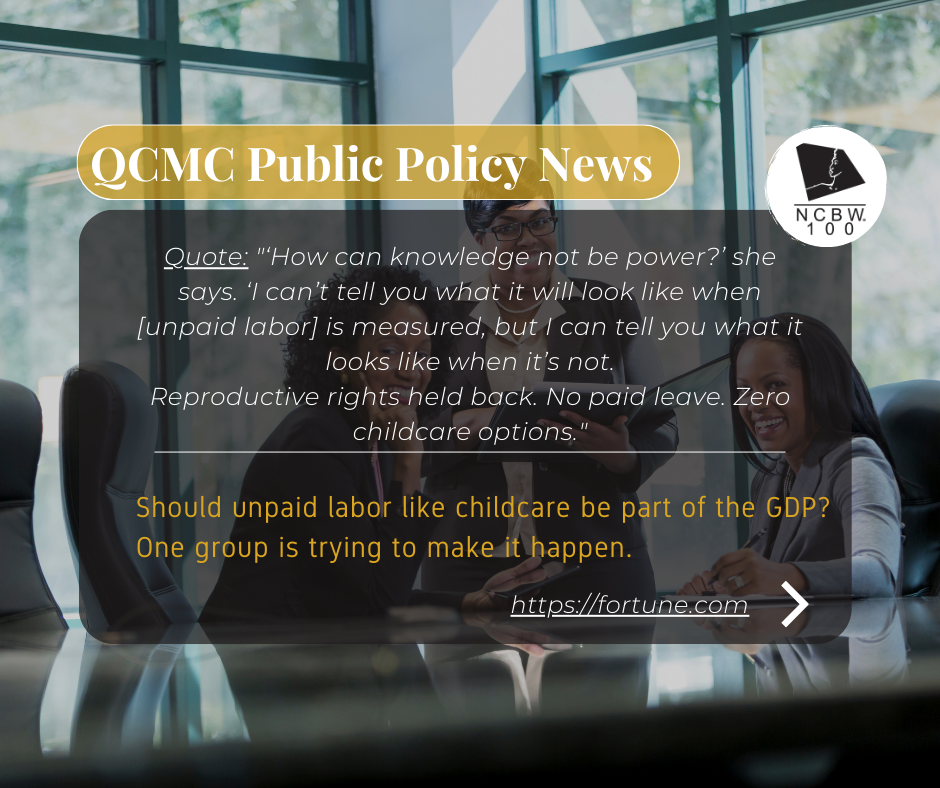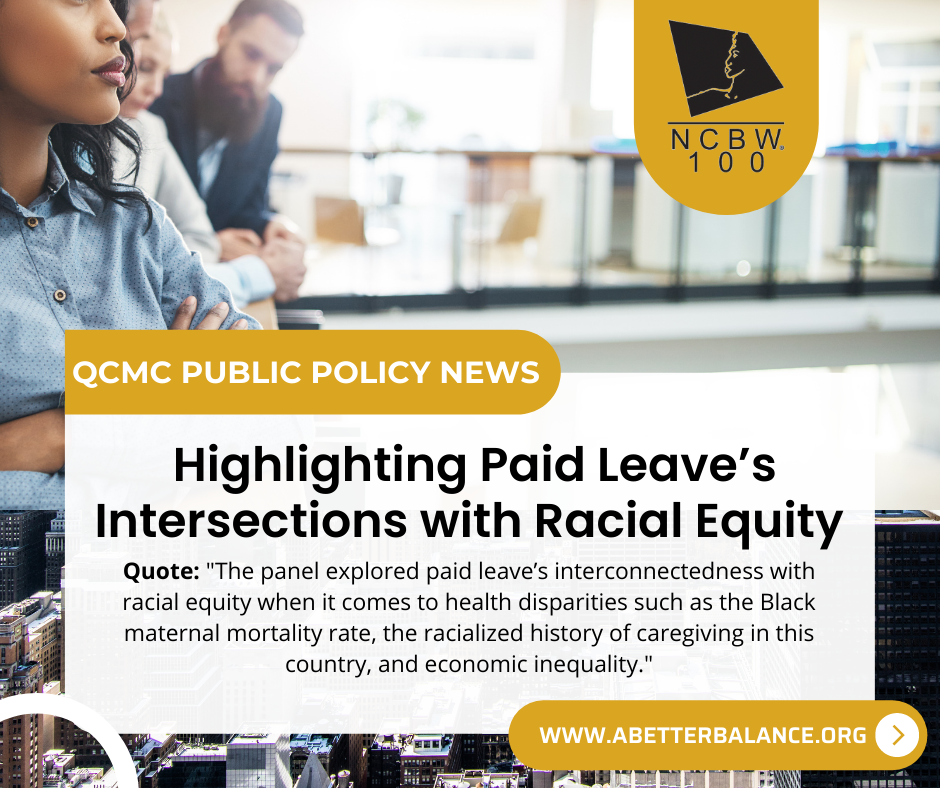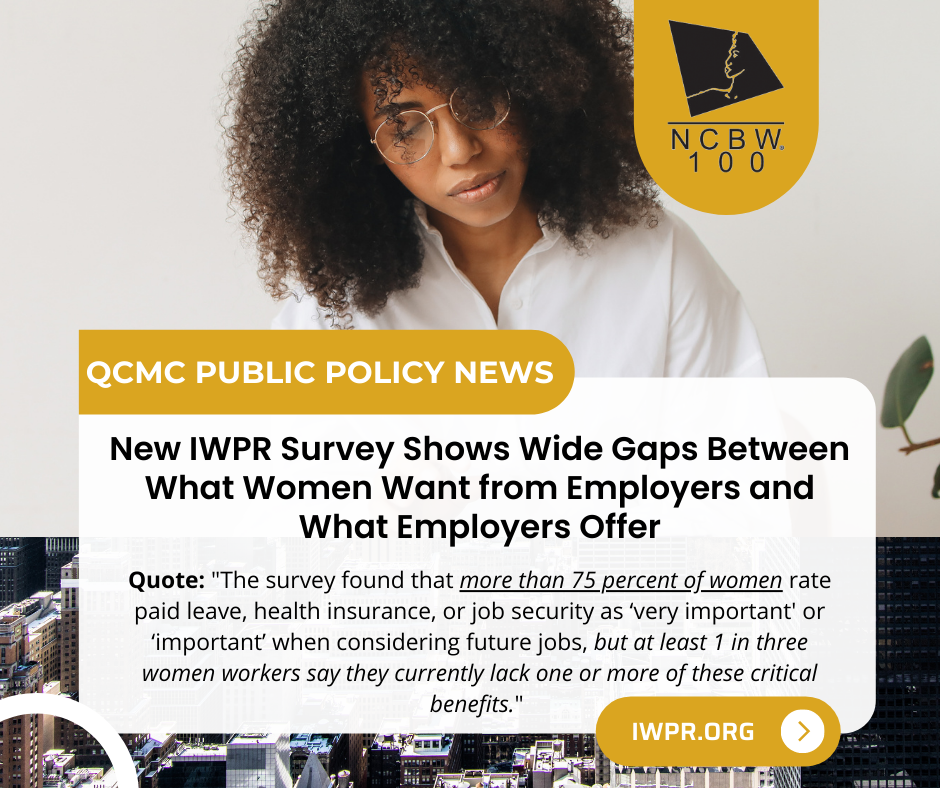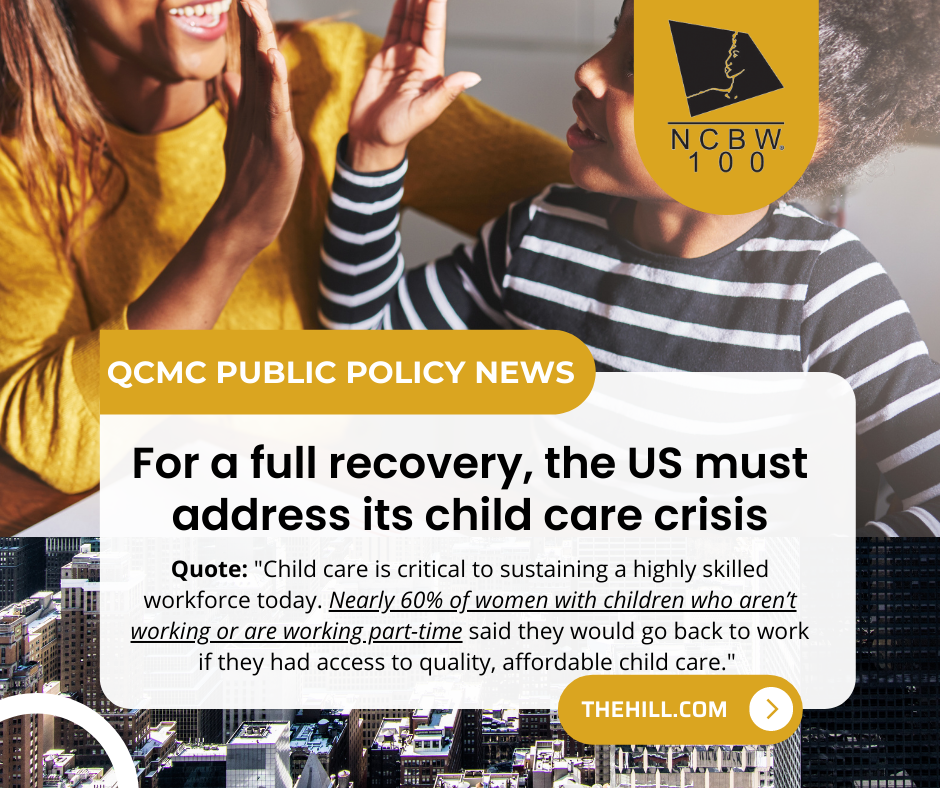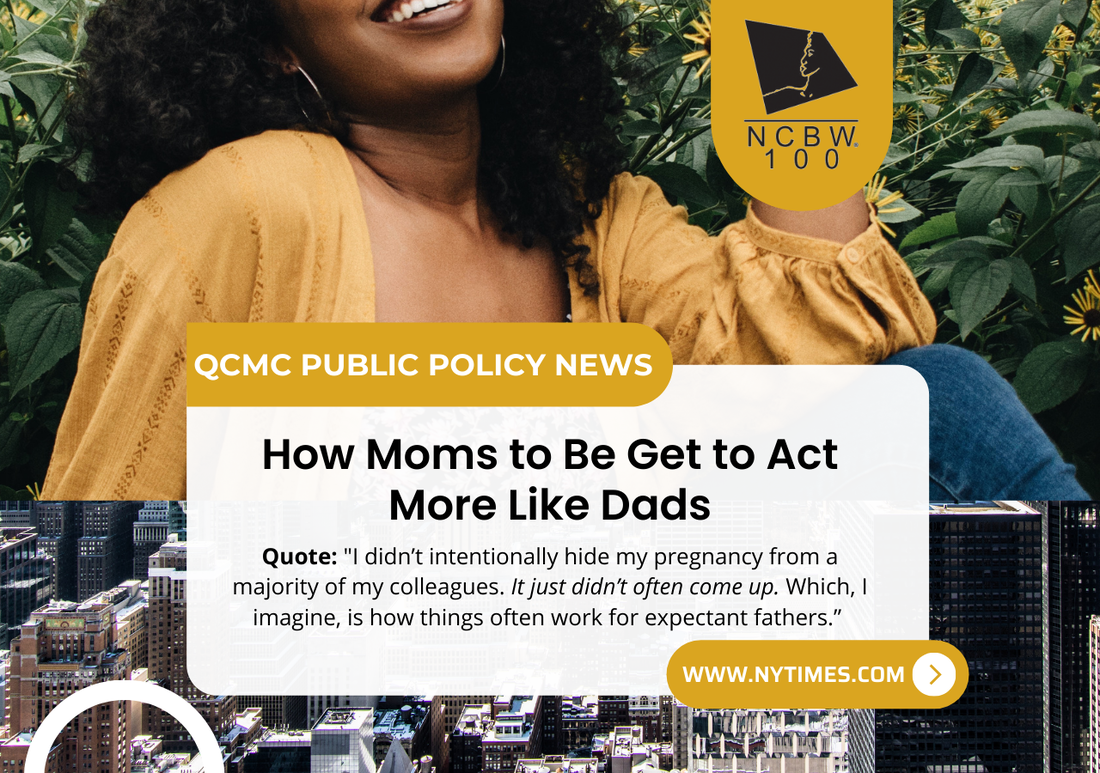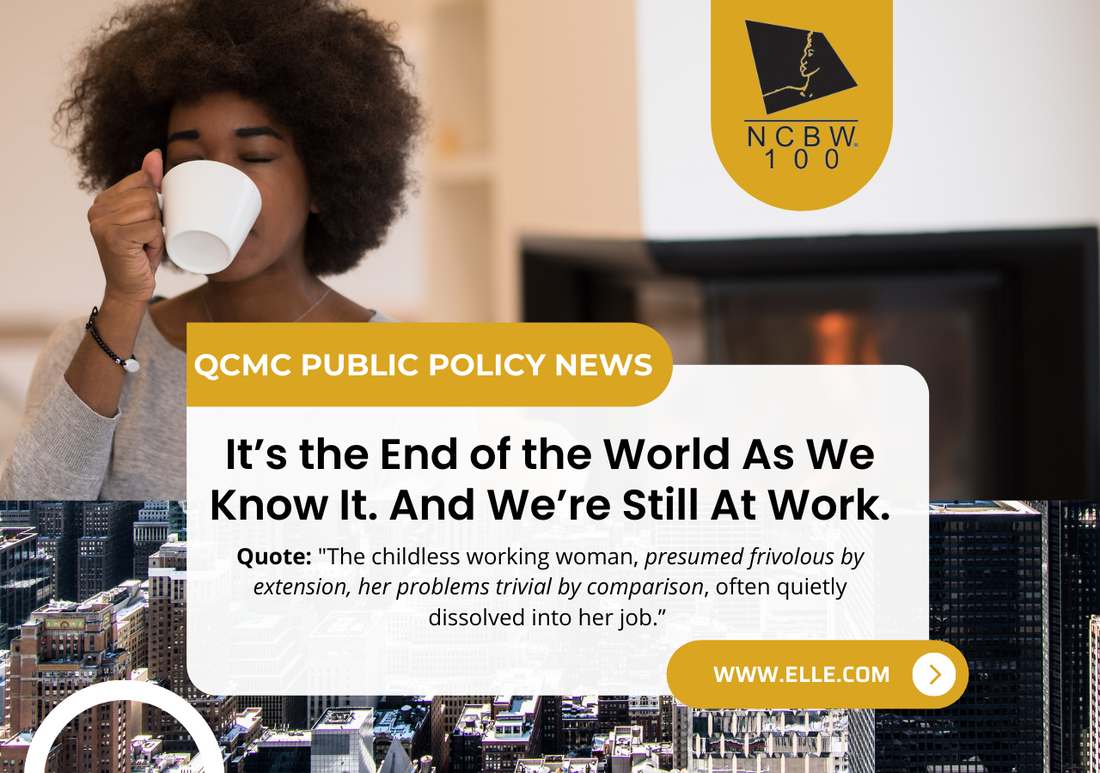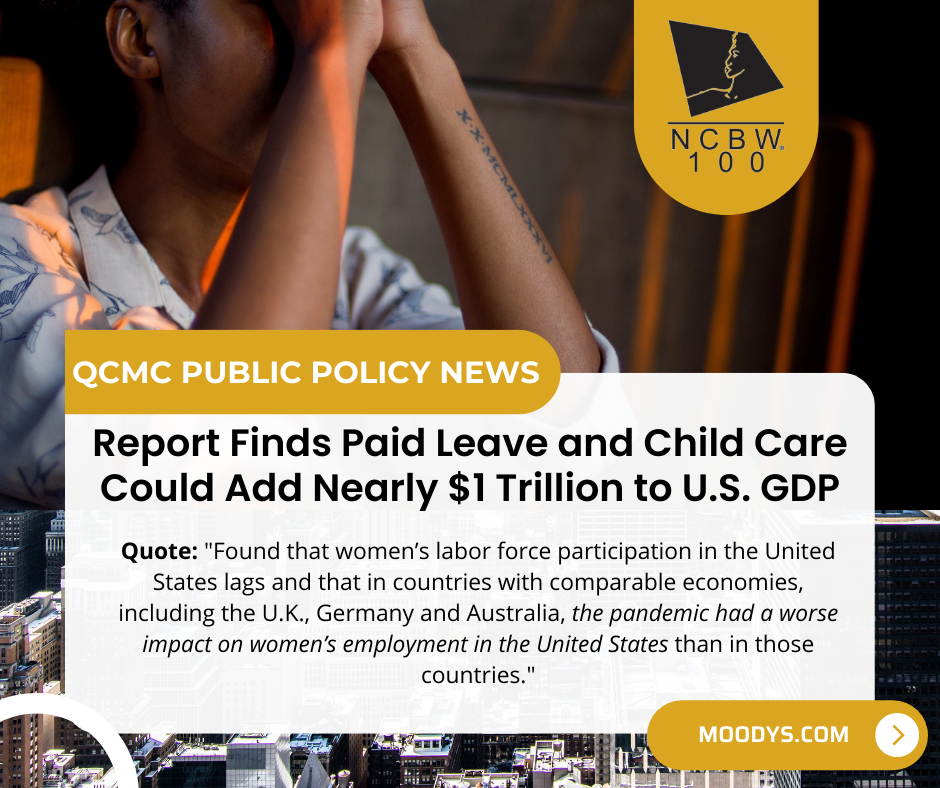|
Excerpt: “Rodsky believes that a better system to value unpaid work, predominantly done by women, will lead to better outcomes for women. ‘How can knowledge not be power?’ she says. ‘I can’t tell you what it will look like when [unpaid labor] is measured, but I can tell you what it looks like when it’s not. Reproductive rights held back. No paid leave. Zero childcare options. What did it do for us not to have it in the GDP? Could it really get worse? We might as well try something new.’” Read More
0 Comments
Excerpt: “The panel explored paid leave’s interconnectedness with racial equity when it comes to health disparities such as the Black maternal mortality rate, the racialized history of caregiving in this country, and economic inequality as we seek to understand how race and structural racism affect access to and need for permanent paid leave protections.” Read the full article.
Excerpt: “There is a wide gap between what women say they want from employers and the benefits employers provide. The survey found that more than 75 percent of women rate paid leave, health insurance, or job security as ‘very important’ or ‘important’ when considering future jobs, but at least 1 in three women workers say they currently lack one or more of these critical benefits. The survey also details the policies women want and expect from employers—health insurance, paid leave, retirement benefits, and flexible work schedules—providing a roadmap for those seeking to hire women as the pandemic eases.” Read the full article.
Excerpt: “In addition, child care is critical to sustaining a highly skilled workforce today. Nearly 60 percent of women with children who aren’t working or are working part-time said they would go back to work if they had access to quality, affordable child care. Nearly all parents (94 percent) have used at least one major cost-saving strategy to save money on child care in the past year, including reducing hours at work (42 percent), changing jobs (26 percent) or leaving the workforce completely (26 percent).” Read the full article.
Excerpt: “I didn’t intentionally hide my pregnancy from a majority of my colleagues. It just didn’t often come up. Which, I imagine, is how things often work for expectant fathers. For parents-to-be whose bodies don’t broadcast the pregnancy, it’s possible to share news of an arriving child with close colleagues but omit it at client meetings.” Read the full article.
Excerpt: “The childless working woman, presumed frivolous by extension, her problems trivial by comparison, often quietly dissolved into her job. In the absence of contact with family and friends, the remote workplace became many white-collar workers’ stand-in for community. No doubt, work is work and, all told, parents had more of it. But career work, unlike parenting, does not offer love in return.” Read the full article.
Excerpt: “While the need for paid leave stretches across race, ethnicity, and gender, this column focuses specifically on Black women because of both their labor force participation and the outsize economic role that many play in their families. Indeed, the vast majority of Black mothers—more than 80 percent—are sole, primary, or co-breadwinners for their households.” Read the full article.
State Treasurer Dale Folwell is reportedly interested in making health care more affordable and save taxpayers money. State Employee's Health Plan provides coverage for 727,000 employees, dependents, and retirees. The plan spends $3.3 billon annually, making it the largest health care purchaser in the state. Folwell's proposal aims to change the way N.C. State Health Plan for Teachers and State Employees pays providers so as to produce an estimated savings of $300 million for taxpayers, and $65 million for plan members annually. Learn more about the issues here.
|
|

